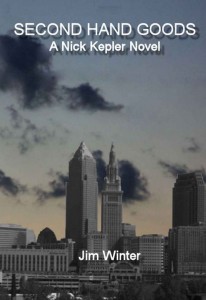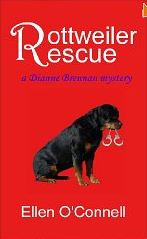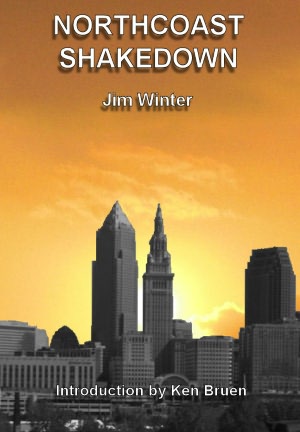My friend Jim Winter is back, with a fantastic new release in his Nick Kepler crime fiction series. He agreed to do an interview here, where we discuss the book. In Second Hand Goods, Cleveland PI Nick Kepler returns, but he’s trying to leave. A routine skip trace entangles Kepler in a stolen car ring and attracts the attention of a beautiful Russian woman, who may or may not be the mistress of one or more Russian crime lords. And all Nick wants to do is go on vacation.
Now, heeeeere’s Jim!
Jennette: Jim, it’s great to have you back on Making the Mundane Magical! Tell us a little about your new release, Second Hand Goods.
 Jim: Second Hand Goods takes place the summer following the events of Northcoast Shakedown. It’s the July 4 weekend, and Nick is looking to blow town for a long-overdue vacation. However, at an engagement party for a friend, he hooks up with a beautiful Russian woman who seduces him into looking for a stolen limo. When the car turns up at an informant’s chop shop, he realizes he’s in the middle of a war between two Russian mobsters.
Jim: Second Hand Goods takes place the summer following the events of Northcoast Shakedown. It’s the July 4 weekend, and Nick is looking to blow town for a long-overdue vacation. However, at an engagement party for a friend, he hooks up with a beautiful Russian woman who seduces him into looking for a stolen limo. When the car turns up at an informant’s chop shop, he realizes he’s in the middle of a war between two Russian mobsters.
Jennette: Ah yes, Nick’s always a sucker for a hot chick! LOL – it’s gotten my main characters in a bit of trouble on more than one occasion, too. One of the challenges of writing a series based on a single character is deciding how or if to age the character, and how he/she changes, learns and grows. Can you share some of what Nick Kepler learned in Northcoast Shakedown that influences what he does in SHG without giving away spoilers? Or if you prefer, does Nick age? And if so, how much between books? Why did you choose this?
Jim: In Northcoast, Nick was basically working a case. He gets a little battered, but he comes out on top. In Second Hand, he’s about a year older, and the consequences to what happens to him can only force some lasting changes. He’s a bit tired of doing business with the seedier side of the city, and in the beginning, actually cuts loose Lenny Slansky (“A Walk in the Rain”) when Lenny stupidly rents him a stolen van for a fugitive grab.
Jennette: LOL I remember Lenny! One of my writing friends blogged about “stale” books not long ago – books with outdated technology or cultural references that in her opinion, pull her out of a story. You wrote both NCS and SHG in the early-to-mid 2000s, and you note this fact in your Author’s Note as an explanation for these elements. Can you tell us why you chose this route, as opposed to updating the books?
Jim: I left Northcoast as is since it was already released in paperback in 2005. Second Hand was six weeks from release when the publisher went out of business. Since they were essentially done, I decided to leave them as-is. As for future efforts, I haven’t decided yet. Nick will age, but whether his birth year remains 1968 or if it slides forward to accommodate when the books and stories are written hasn’t been decided yet.
I think if I keep him on the calendar, I’m going to have to be a bit more subtle about depicting the time. Technology inevitably goes stale. In five years, people might snicker at the idea of laptops, and few Mac users actually have a tower anymore. They’re mostly iMacs and laptops. Usually, the Windows world follows suit, and we’ll probably all be working off of pads before long.
Jennette: I’m so with you. That was a challenge with my books as well. On another note, both Nick Kepler books are set in Cleveland. Aside from the fact that you lived there for much of your life and are familiar with the area, what made Cleveland your choice for a crime fiction series, as opposed to your current hometown, Cincinnati? Are there any bits of setting in SHG that you love, that would give readers a good feel for the place, and would like to share?
Jim: Cleveland, I think, has more in common with larger cities like Chicago and Philadelphia than the river towns like Cincinnati. The language is coarser, the people more mixed, and there’s a certain energy you get in Chicago and the Northeast that you don’t see further south. I don’t think Nick would thrive very well in a southern city, and Cincinnati, being a somewhat southern-leaning, white collar town, probably wouldn’t appeal to him.
There is, of course, the appeal of having a large inland sea someone mistakenly dubbed a lake nearby. And Cleveland has that gritty post-industrial vibe to it.
Jennette: Having read the books, that totally makes sense–in fact, now that I think about it, it’s hard to picture Kepler anywhere else, and I’ve only been to Cleveland twice, a long time ago. So what’s next for Nick Kepler – are you planning to release the fantastic, LOL third book in the series that I had the privilege to read several years ago?
Jim: Bad Religion will get another pass before I release it. It was in mid-revision when my publisher shut down, so I’m probably going to have to work a little harder on this one. This one, like the first two, will be “on the calendar” so to speak, taking place in 2004. After that, I’ll decide if Nick is going to live on a floating timeline or just move on to 2005.
Jennette: Cool! I think of the three, Bad Religion was my favorite. I made the mistake of reading it at work when there was nothing to do, and was getting weird looks from my coworkers because I kept laughing! So what’s next for Jim – or for his alter-ego?
Jim: Next up is a short story collection. I’m going to put all the Kepler shorts together in chronological order, including a new short where a call girl Nick once got off of heroin decides whom she wants for her final client before retiring. Bad Religion will follow after that.
The alter-ego is working on a science fiction novel and a handful of short stories. Beyond that, who knows?
Jennette: It sounds like you’ll be busy for a while! I know I’m looking forward to re-reading Second Hand Goods–and to your short story collections–both of them!
What about you, readers? Do you like series characters who age, or do you think it takes away from the story? What about outdated technology–does it bother you, or are you okay with it as long as you know what to expect?
 In Rottweiler Rescue, Dianne Brennan is a computer trainer who volunteers with a dog rescue organization in her community. One day, she’s delivering a dog to his new owner, and finds the man dead–and the presumed killer escaping out the back. Dianne goes to the police, but someone else goes after Dianne. After a number of scares and suspicious mishaps, Dianne can only conclude that the dog trainer’s killer is after her. The police aren’t getting very far, so Dianne starts looking into things on her own. With her own Rottweiler and Robo, the dog she was in the process of rehoming, in tow, she finds and follows up on her own leads. But the closer she gets to finding answers, the more her quarry retaliates as he continues to elude her.
In Rottweiler Rescue, Dianne Brennan is a computer trainer who volunteers with a dog rescue organization in her community. One day, she’s delivering a dog to his new owner, and finds the man dead–and the presumed killer escaping out the back. Dianne goes to the police, but someone else goes after Dianne. After a number of scares and suspicious mishaps, Dianne can only conclude that the dog trainer’s killer is after her. The police aren’t getting very far, so Dianne starts looking into things on her own. With her own Rottweiler and Robo, the dog she was in the process of rehoming, in tow, she finds and follows up on her own leads. But the closer she gets to finding answers, the more her quarry retaliates as he continues to elude her.



 I first read Northcoast Shakedown by my friend
I first read Northcoast Shakedown by my friend 